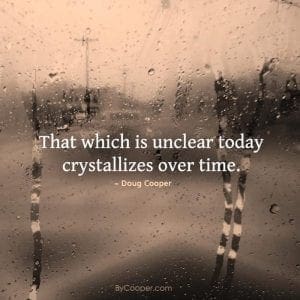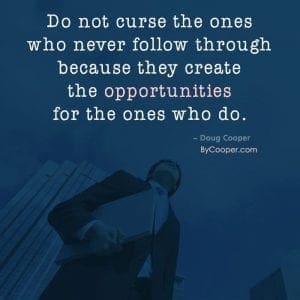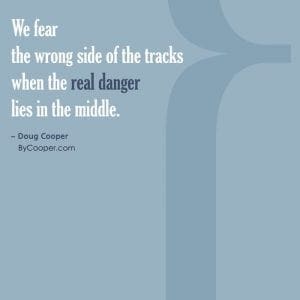
The dream comes first. Then the fear. We don’t really have anything to be afraid of until we know what we really want. It’s only after the dream materializes, that our doubt, apprehension and uncertainty manifest into our deepest fears and seem to thwart the realization of our vision. What we forget is that as long as we are feeling fear, we are on the right path. Fear is not an adversary to fight against or an obstacle to overcome. It is an indication that we are close to our dreams and encouragement to remain open and keep going.

Today’s world demands immediacy. Everything must happen now. We don’t have time to wait. Unfortunately life operates on its own timetable, causing what we experience to confound and confuse. Worse yet, the more we analyze and investigate, the more it doesn’t make sense. But we rarely have all the information. We are continually trying to put puzzles together with pieces missing. Whether it is our own evolving perspective, a cultural shift, or a new discovery, we need to be patient. Our understanding is not a mystery to be solved but rather a temporary affliction for which time is the antidote.

It’s so easy to focus on the people who let us down. After all, there are a lot of them out there — the ones always making promises but never following through. Dealing with continual and abundant frustration can cause us to change the way we view and interact with everyone. We spend so much time crafting our approach, believing we can find a way to manage them into better performance. Or even worse, we automatically condition ourselves to expect the worst to counteract the certain disappointment to follow. But others’ failures to respect commitments are not obstacles. They are chances for everyone else.

Fear is a powerful motivator. “Stay away from this” and “Watch out for that” are both warnings we hear and use to caution others. Although well-intending, this barrage of threats can also paralyze. We become hesitant, full of angst and doubt of what might happen. Of course there will always be risk in changing our positions or taking a stand opposite of our peers or rivals. Keeping ourselves in the middle may seem like the safe move for long term longevity. The true peril, however, lies not in the actions we take, but in the choices we never make.

Comments from others shape most of our actions. We learn from an early age what is acceptable and what is not through verbal feedback. Sometimes we disregard and do what we feel anyway, but usually we factor in the potential responses from others before choosing our course and evaluate the reactions afterward. No feedback equates to approval, indifference, or unawareness. But this is a dangerous assumption. Whether consciously or unconsciously, all that we do is recorded by those around us. Each action is a cumulative drop in a cup. It may not cause a spill, but that doesn’t mean it wasn’t observed.





